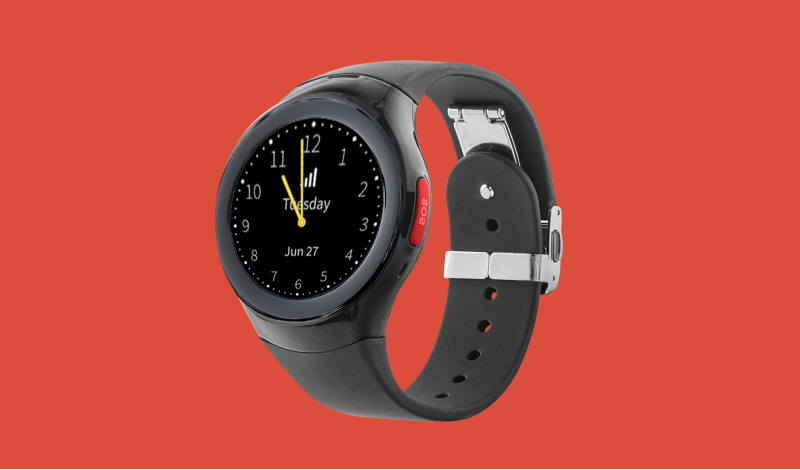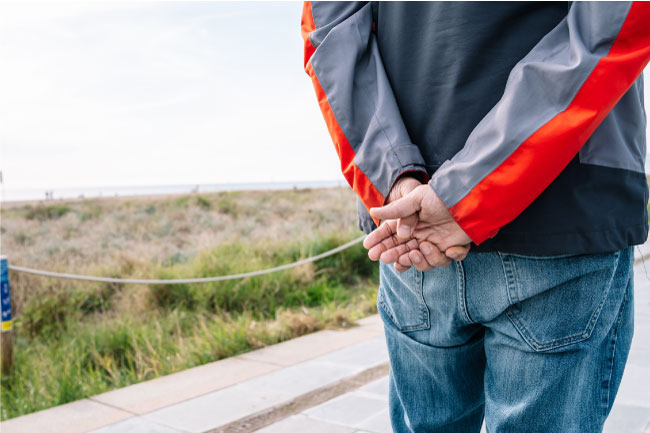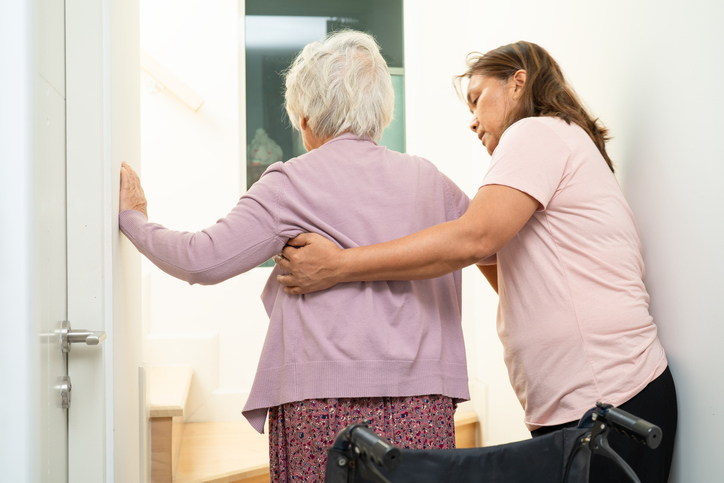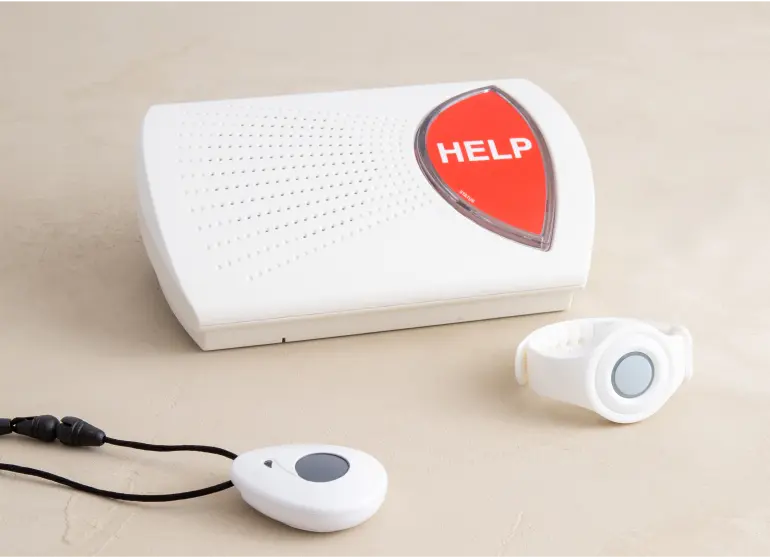Sixty percent of dementia patients wander away from home at least once. This behavior is dangerous for patients and extremely stressful for their families and caregivers. If you’re worried about a loved one wandering away from home, consider these easy aging in place home modifications and technology solutions that help keep your family member safe while offering you peace of mind.
Install Door Alarms & Motion Sensors
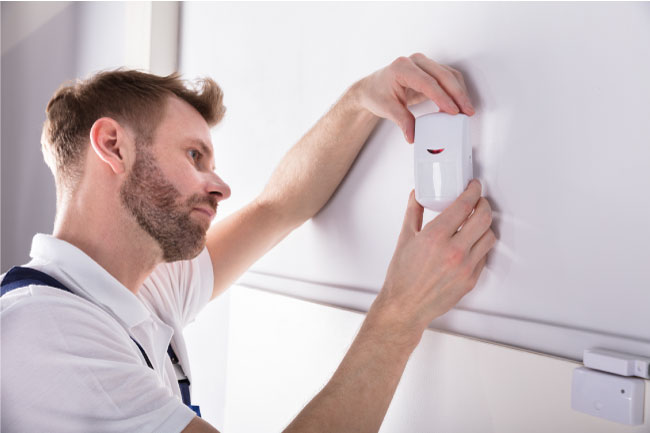
Place sensors that emit an audible alarm on all external doors and windows. You’ll know immediately when someone enters or exits the house. Motion sensors inside the home can warn you if your loved one is up at night and moving about the house.
Add/Upgrade Door Locks
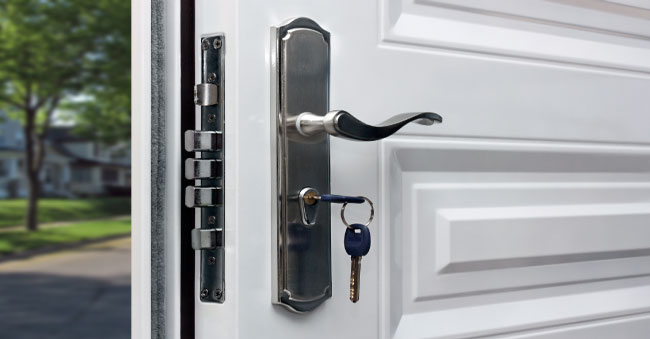
Dementia patients tend to not notice details that are above or below eye level. That can be dangerous because it increases the risk of falling and other accidents, but it works to your advantage with doors. Extra door locks placed higher or lower than expected on a door can help prevent a dementia patient from unlocking the door and leaving.
Some “childproof” devices also help keep dementia patients safer.
- Doorknob covers spin freely unless the user grips them tightly.
- Cabinet door slide locks keep medications, cleaning supplies, and other potentially dangerous items safe.
- Sliding glass door locks placed high on the door make exit more difficult.
Add Visual Cues to Entrances & Exits
Many dementia patients wander unintentionally because they accidentally opened the wrong door become confused. Add signs and symbols to the house to help them stay visually oriented. For example:
- Post signs on the door of each room: KITCHEN, BATHROOM, BEDROOM
- Add “DANGER” or STOP signs to alert them to dangerous areas like external doors, basement door, etc.
- A large black rug or floor mat may deter people with severe dementia from using a particular door. Place it in front of the door to create a “visual cliff.” Many patients think the dark spot hole in the floor, so they step away from it.
Hide Car Keys
This may seem like it’s too obvious to even mention, but most seniors are reluctant to stop driving, and it may be hard to convince them that it’s time to give up the keys. Even people with severe dementia can still get in the car and drive away. All too often, that ends in tragedy – and may even leave your family with legal liability!
Keep keys out of sight. Never leave them in a purse or coat pocket, and especially not on a hook near the door. The sight of a set of keys on a counter or in a familiar place can trigger memories of picking kids up at school, driving to work, or other routine activities. A steering wheel lock can also deter a patient who is determined to drive.
Discuss the Situation with Neighbors
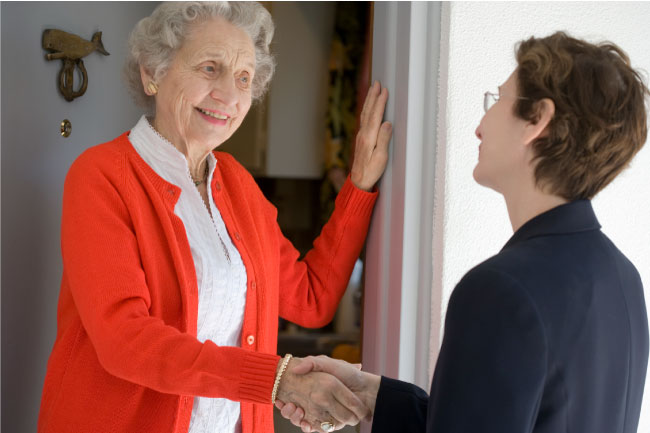
Talk with the neighbors, explain your loved one’s condition, and share your contact information with them. They can alert you and the authorities before your relative gets far and into a dangerous situation.
Use a GPS Tracking and/or Geofencing App
![]()
Wandering is particularly dangerous during extreme temperatures. Dementia patients may not remember to wear clothing that’s appropriate for the weather or realize that conditions are dangerous. In 2020, a California woman with dementia went missing for 6 days before rescuers found her alive in her snow-covered car 150 yards off the road.
If your loved one disappears, it’s critical to find them as soon as possible. Bay Alarm Medical’s Caregiver Tracking App makes it easy to locate them with just a few taps in the app. It’s an optional upgrade to our GPS Mobile Help Button.
Our Caregiver Tracking app features include:
- Real-time location tracking
- Low-battery notifications
- Install on multiple devices
- Get weather alerts so you can help your loved one prepare for extreme temperatures
- Set up geofencing to receive an alert when your loved one leaves home or travels outside a defined geographic area.
Bay Alarm Medical is rated as one of the nation’s best medical alert systems. Contact us at 1-877-522-9633 to learn about our products, service bundles, rates, and specials. Try a system for free for 30 day with no obligation.



